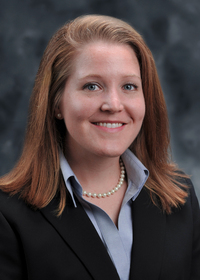Information Possibly Outdated
The information presented on this page was originally released on January 8, 2004. It may not be outdated, but please search our site for more current information. If you plan to quote or reference this information in a publication, please check with the Extension specialist or author before proceeding.
Discuss details with potential caterers
MISSISSIPPI STATE -- When selecting a caterer for a wedding, no detail is too trivial to consider when making decisions about the potential quality and cost for the service.
Melissa Mixon, human nutrition specialist with Mississippi State University's Extension Service, said the food bill can be as much as 45 to 50 percent of the wedding expenses. Couples should select their caterers with a budget in mind as well as a clear understanding of everyone's expectations.
"Most couples either hire professional caterers or they have friends who donate food to help keep costs down," Mixon said. "Both options offer advantages and disadvantages. Typically, a professional should have more experience with the unexpected challenges that can occur, but you will pay a lot more for that knowledge."
In Mississippi, professional caterers should have a permit from the Mississippi Department of Health, which ensures they have had food safety training and that they operate under the laws from the Food and Drug Administration and the state Board of Health. They also will have a sales tax number from the Mississippi Tax Commission.
"Food safety considerations won't add to the expenses, but the failure on anyone's part to observe proper food handling can cost you in unexpected ways," Mixon said. "The results of a food-borne illness can vary from mild discomfort to death. People who are most at risk of serious illness include pregnant women, the elderly, young children and people with compromised immune systems."
Charlene Bruce, director of the Food Protection Division with the state Department of Health, said a professional caterer helps protect couples from liability concerns if anyone gets ill from the food.
"For example, if a bride hires an unlicensed (illegal) caterer, then the bride will be liable if guests get sick from the food," Bruce said. "If a licensed, professional prepared the food, that individual will be liable, not the bride."
After couples have checked references and feel comfortable with the ability of a caterer, Mixon said they should spend plenty of time discussing their wishes and their budget.
"The bride and groom may want to decide on a set amount to spend on the food and try to estimate the number of guests expected. Then the caterer can expand or decrease the number of options accordingly," she said. "Watch for additional costs from setting up to cleaning up."
Have an understanding of service responsibilities. If the caterer will simply provide the food, the bride will need to make sure someone else is designated to organize the people who will assist in serving and cleaning up afterward.
"Some caterers provide dinnerware or china and some do not. Make sure you know if any decorations are included in the caterer's price," Mixon said. "Some will provide a leftover basket with nonperishable food items, which is always a good idea since most couples eat very little at their receptions."








